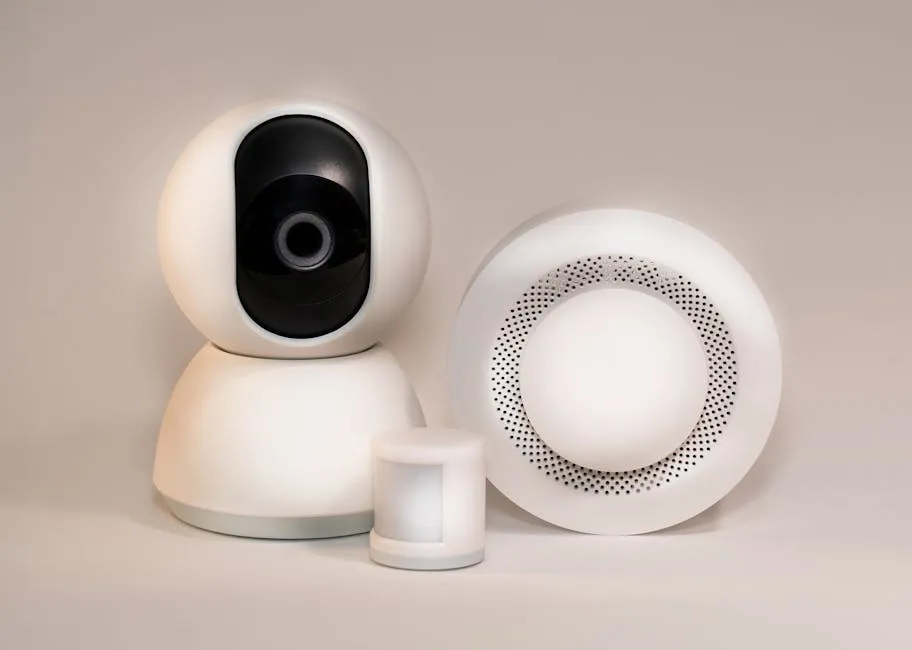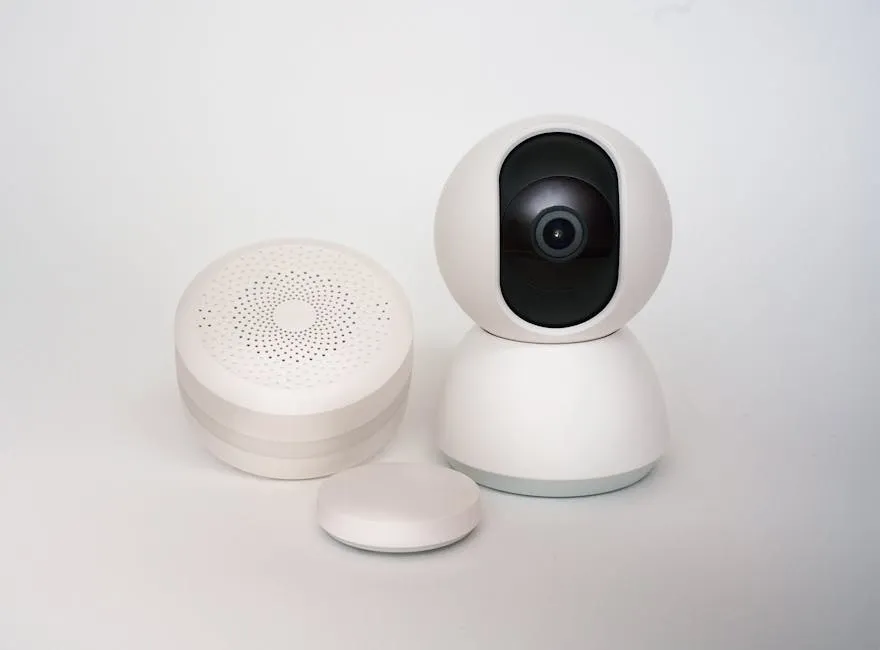
Why Is My Smoke Detector Beeping? Understanding the Causes and Solutions
Why Is My Smoke Detector Beeping? Understanding the Causes and Solutions
Have you ever been jolted awake by the incessant beeping of your smoke detector? This common issue can be alarming and frustrating. However, it’s a crucial signal that something requires your attention. Addressing the beeping quickly is essential for your safety. In this article, we’ll discuss various reasons why your smoke detector might be beeping and how to fix them.
Summary and Overview
Smoke detectors play a vital role in fire safety. They act as an early warning system, alerting you and your loved ones to potential dangers. However, a malfunctioning smoke alarm can pose significant risks. Ignoring a beeping detector may result in missing crucial warnings. This article covers several key topics, including common causes for beeping, troubleshooting strategies, and maintenance practices to keep your alarms functioning effectively. We’ll explore issues like battery failures, environmental factors, and the importance of regular checks to ensure your smoke detectors remain reliable. Understanding these aspects can make a difference in your home’s safety.
Speaking of reliability, make sure you’re stocked up on batteries! A great option is the 9V Alkaline Batteries (Pack of 12). These batteries are perfect for keeping your smoke detectors chirping along happily, and they last longer than your average battery, so you won’t have to change them as often!
For insights on how environmental factors impact communication in the workplace, check out this article on why do environmental factors contribute to glossophobia in the workplace.
Common Reasons for Smoke Detector Beeping
Battery Issues
Is your smoke detector beeping? One of the main culprits could be low or dead batteries. When batteries run low, most smoke detectors emit a chirping sound every 30 to 60 seconds. This alerts you that it’s time for a replacement.
Regular battery checks are essential. Aim to change your smoke alarm batteries at least twice a year. A good rule of thumb is to do this during Daylight Saving Time changes. Different smoke detectors may use various battery types, often 9V alkaline or lithium batteries. Did you know that nearly 25% of smoke detectors fail due to dead batteries? That’s a staggering statistic!
Watch for signs of low battery, such as a persistent chirp or dimmed indicator lights. Don’t let a dead battery compromise your safety. Make it a habit to check and replace your smoke detector batteries regularly. And if you’re looking for a reliable smoke alarm, consider the Kidde 10-Year Worry-Free Battery Smoke Detector. It takes the worry out of battery changes!

Environmental Factors
Humidity, temperature fluctuations, and dust can trigger false alarms in your smoke detectors. High humidity, especially, can confuse detectors, causing them to beep unnecessarily. To avoid this, place your smoke detectors in ideal locations. Keep them away from kitchens, bathrooms, and other areas prone to steam or cooking smoke.
Cleaning your smoke detectors is also crucial. Regularly dust off the outside and use a vacuum or compressed air to remove debris from vents. Studies suggest that environmental factors account for a significant percentage of false alarms.
Ensure your detectors are clean and correctly positioned to minimize issues. If your smoke alarm continues to beep, check those environmental conditions and give your detectors some TLC. And hey, while you’re at it, why not grab a Honeywell Home RWD41 Wireless Smoke Detector? It’s a smart choice for modern homes!

Age and Expiration of Smoke Detectors
Smoke detectors typically last between 7 and 10 years. After this period, their effectiveness declines. It’s essential to check the manufacturing date, often stamped on the back. If your smoke detector is nearing or past this age, consider replacing it.
Many homes have outdated smoke detectors. In fact, studies show that nearly 25% of households use detectors older than the recommended lifespan. This can put you at risk during emergencies.
Watch for signs that indicate it’s time for a new smoke detector. If your unit frequently beeps without cause or if you notice physical damage, it may be malfunctioning. Additionally, if the alarm fails to respond during tests, it’s time to replace it. If you’re in the market for a new one, try the First Alert BRK 3120B Hardwired Smoke Detector. It’s reliable and gets the job done!

Regularly checking the age of your smoke detectors can safeguard your home. Don’t wait for that annoying beep to remind you! Ensure your detectors are up to date and functioning properly for your family’s safety.
Understanding Smoke Detector Sounds
Different Beeping Patterns and Their Meanings
Smoke detectors communicate vital information through various sounds. Understanding these patterns can help you respond appropriately.
A continuous beep typically indicates smoke detection. Your immediate action should be to evacuate and call emergency services. On the other hand, chirping sounds every 30 seconds often signal a low battery or the need for maintenance.
Intermittent chirping can also indicate other issues, such as dust buildup or a malfunctioning unit. Always refer to your smoke detector’s manual to interpret specific sound patterns. Many models include a guide to help you decipher the beeping.
If you’re unsure about the meaning of the beeping, don’t hesitate to consult your manual. It’s a valuable resource for keeping your home safe. Understanding these signals can make a real difference in emergency situations, so stay informed!

Common Misconceptions About Beeping
Many people misunderstand what smoke detector beeping really means. A common myth is that a single beep indicates a malfunction. However, this sound often signals a low battery or a need for maintenance. It’s crucial to know the difference.
When your smoke detector goes off, your first step should always be to check for smoke or fire. If there’s none, focus on the device itself. Ensure that the battery is fresh and properly installed. Additionally, don’t ignore the importance of cleaning your smoke detectors regularly. Dust and dirt can trigger false alarms too!
Another misconception is that beeping is merely annoying and can be ignored. This is dangerous! Understanding these signals plays a vital role in fire safety. By educating yourself about smoke detector sounds, you increase your chances of preventing potential dangers in your home.
Stay informed and proactive about smoke alarm signals. It could save lives! And while you’re at it, consider investing in a Honeywell HPA300 Air Purifier. It’ll keep your air clean and help reduce false alarms from dust!

Troubleshooting a Beeping Smoke Detector
Step-by-Step Guide to Resolving Beeping
If your smoke detector won’t stop beeping, don’t panic! Follow these steps to troubleshoot the issue effectively.
- Replace the Battery: Start by changing the battery. Most detectors require a 9V battery. Make sure the new battery is securely in place. If it’s a hardwired unit, check the backup battery.
- Clean the Detector: Dust can block sensors. Use a vacuum or compressed air to clean the unit. Make sure to wipe the exterior as well.
- Check Connections: For hardwired detectors, inspect the wiring and connections. Loose or corroded wires can cause beeping. If you see any issues, consult a professional.
- Reset the Unit: Resetting can help clear any errors. For battery-operated models, remove the battery, press the test button for 15 seconds, then reinstall the battery. For hardwired units, turn off the power at the breaker, disconnect, and reconnect everything.
- Replace the Unit: If beeping persists after these steps, it may be time to replace the smoke detector. Most units last between 7-10 years.

Taking action immediately can ensure your home remains safe. Follow this checklist regularly to maintain your smoke detectors! And if you’re looking for a trusty vacuum to keep your floors clean, check out the iRobot Roomba 675 Robot Vacuum. It’ll keep your home clean and reduce dust buildup around your detectors!
When to Call a Professional
Sometimes, smoke detector beeping signals issues beyond simple battery replacements. If your smoke detector continues to beep after changing the batteries, it might be time to call for professional help.
Look for signs of electrical problems. Flickering lights or other devices malfunctioning may indicate wiring issues. A malfunctioning smoke detector could also be the culprit. If it’s older than ten years, it may simply need replacement.
Ignoring persistent beeping can compromise your safety. Smoke detectors are your first line of defense against fires. If the beeping persists, don’t hesitate to reach out to a professional smoke alarm service. They can assess your situation and perform necessary repairs or replacements.

Prioritizing safety ensures your home remains protected. Never overlook the importance of a functioning smoke detector, as it plays a critical role in protecting lives and property. And if you want to ensure your home stays safe from smoke and fire, consider reading The Fire Safety Book by Robert L. Dwyer. It’s a great resource for keeping your family safe!

Conclusion
In conclusion, understanding why your smoke detector is beeping is vital for safety. Key issues include battery problems, environmental factors, and unit age. Addressing beeping immediately can prevent potential dangers.
Regular maintenance of smoke detectors is crucial. They are essential for early fire detection, giving you and your loved ones a chance to escape safely. Remember, a working smoke detector can save lives and protect your property. Always stay vigilant and proactive about your smoke alarms! And if you need a good kitchen scale for those late-night baking adventures, check out the Ozeri ZK14-S Pronto Digital Kitchen Scale. Perfect for measuring your ingredients precisely!

FAQs
Why is my smoke detector beeping every 30 seconds?
This usually indicates a low battery or that the unit needs maintenance.
How often should I change the batteries in my smoke detector?
Change batteries at least twice a year, ideally during Daylight Saving Time changes.
Can dust cause my smoke detector to beep?
Yes, dust can interfere with the sensor and cause false alarms. Regular cleaning is advised.
What should I do if my smoke detector is still beeping after changing the battery?
Check for proper installation, clean the unit, and consider a reset.
How long do smoke detectors typically last?
Most smoke detectors last 7-10 years and should be replaced after that period.
Are hardwired smoke detectors better than battery-operated ones?
Both types have pros and cons, including reliability and maintenance needs.
What does it mean when all smoke detectors in my house beep simultaneously?
This usually indicates one unit has detected a problem or that a system-wide issue exists.
Please let us know what you think about our content by leaving a comment down below!
Thank you for reading till here 🙂
All images from Pexels




